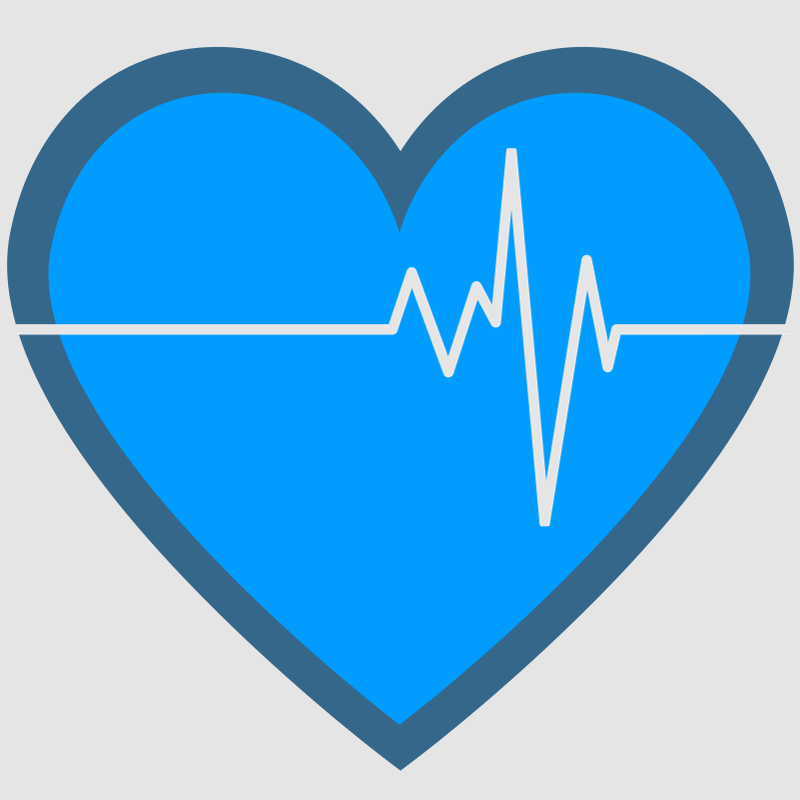What is covered in a Cardiovascular Technology program and What Does a Cardiovascular Technologist Do?
The Cardiovascular Technology program covers the many aspects of the cardiovascular system, including the heart, the circulatory system, and the peripheral vascular system. Upon completion of the program, graduates will be able to perform assessments, put together diagnostic tests, take care of patients, and much more.
Courses cover anatomy and physiology; blood and circulation; electrocardiography; catheterization; and nutrition and health. Cardiovascular technologists work in cardiac catheterization labs and in cardiology, respiratory care, and vascular diagnostic labs, performing cardiac treatments and monitoring cardiologists, nurses, and other lab personnel.
Cardiovascular technologists are medical technologists that are involved in performing diagnostic tests, monitoring, and treatment of medical conditions that affect the cardiovascular system.
What You Can Do With a Cardiovascular Technologist Degree
With a degree in cardiovascular technology, you can pursue a range of career paths in the healthcare industry. Cardiovascular technologists have the important responsibility of diagnosing and treating a variety of cardiac and vascular conditions, such as heart disease and hypertension. Cardiovascular technologists may specialize in different areas, including echocardiography, electrocardiography (EKG), and invasive cardiology procedures.
Here are some of the primary areas that cardiovascular technologists specialize in.
1. Cardiovascular technologist
2. Echocardiographer
3. Electrocardiograph (EKG) technician
4. Invasive cardiology technician
5. Vascular technologist
6. Cardiac sonographer
7. Cardiac catheterization laboratory technician
8. Cardiopulmonary technologist
9. Nuclear cardiology technician
10. Holter monitor technician
Cardiovascular Technologist Jobs and Average Salaries
Cardiovascular technologists are highly trained healthcare professionals who specialize in diagnosing and treating cardiovascular diseases. They work closely with physicians to perform diagnostic tests, such as echocardiograms and electrocardiograms, to monitor the health of the heart. Cardiovascular technologists may also assist in therapeutic procedures such as angioplasty, stenting, and pacemaker implantations.
Cardiovascular technologists working across the United States can expect to receive salaries ranging from $35,000 to $85,000 per year. The exact salary that a cardiovascular technologist will earn depends on many factors, including geographical location, years of experience, and specialty field. For example, those with specialized training in cardiac catheterization may have higher earning potential than those who specialize in echocardiography or electrocardiography. In addition to base salaries, cardiovascular technologists may also be eligible for bonuses and other incentives based on performance or tenure.
Cardiovascular Technology Tracks
In the field of cardiovascular technology, there are several different tracks that students can pursue. Cardiovascular technologists typically specialize in either echocardiography or invasive cardiology. In addition, there are also specialty programs for Vascular Technology and Cardiac Rehabilitation.
Echocardiography
Echocardiography is a type of medical imaging that uses ultrasound to create a picture of the heart’s structure and function. An echocardiogram is an imaging test used to visualize the heart and its structures. It uses sound waves to create a moving picture of the heart and its valves, allowing the cardiovascular technologist to assess the structure and function of the heart. This type of ultrasound imaging is often used to diagnose and treat certain heart conditions, such as coronary artery disease, congestive heart failure, and other abnormalities.
Invasive Cardiology
Cardiovascular technologists who specialize in invasive cardiology are highly trained healthcare professionals who assist physicians in performing procedures such as angioplasty, stenting, and pacemaker implantations. Invasive cardiologists use catheters and other specialized tools to diagnose and treat cardiac diseases. They work closely with physicians to monitor the patient’s vital signs during a procedure and provide support. Cardiovascular technologists must have excellent problem-solving and communication skills, as well as the ability to work independently or in a team setting.
Invasive cardiologists must be able to operate several types of imaging equipment used for diagnosing heart conditions. For example, they may use fluoroscopy or ultrasound to view the interior of the heart while it is being operated on. This type of imaging helps them ensure that all necessary procedures are completed accurately. In addition, they may also be responsible for operating other technology such as defibrillators or pacemakers if necessary.
Invasive cardiologists must be knowledgeable about medical terminology and anatomy related to the cardiovascular system. They must also have good interpersonal skills so they can effectively interact with patients and their families during a procedure. Furthermore, invasive cardiologists need to possess good judgment when making decisions about how best to proceed with a particular procedure or treatment plan for each patient’s individual case.
What are some typical positions that Cardiovascular Technologists are employed in?
Cardiovascular technologists are employed by hospitals, doctors’ offices, research facilities, and academic medical institutions.
A cardiovascular technician typically operates electrocardiograms and other recording equipment and interprets the findings. Cardiovascular technologists can specialize in medical technology, public health, and other areas.
What are the Qualifications to Become a Cardiovascular Technologist?
Cardiovascular technologists can receive training through an Associate’s Degree program, a certificate program, or a bachelor’s degree program.
The education required for cardiovascular technologists by some states and employers is a four-year Bachelor of Science degree in Cardiovascular Technology or Applied Science but for many, a certificate or associate degree is enough. Clinical training is completed through an accredited cardiovascular technology program, with internships in hospitals under the supervision of an experienced cardiovascular technologist.
How Much Will a Cardiovascular Technologist Program Cost?
The cost of a cardiovascular technologist training program can vary widely depending on the school you choose, the type of program it is, and where you live. Generally speaking, most programs in the United States cost anywhere from $2,500 to $15,000 for tuition and fees. If you are attending an online program or live outside the United States, costs may be higher or lower depending on a number of factors.

